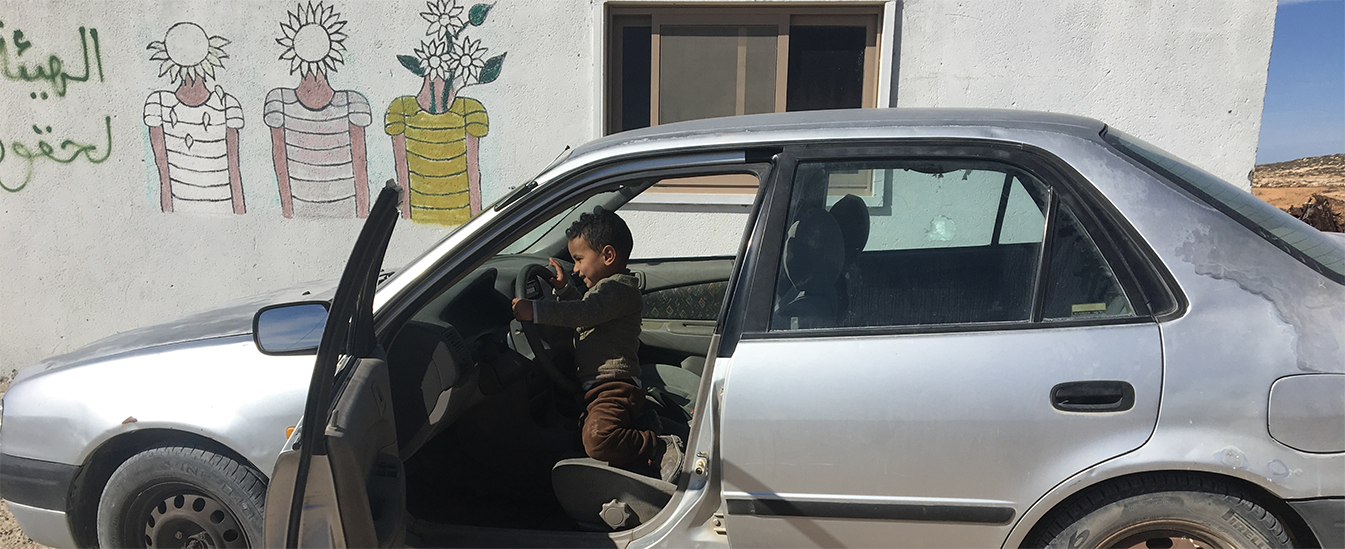Resilient communities
Living and thriving in a situation of ongoing occupation is a daily struggle. PAX strengthens the protection and coping mechanisms against rights-violations, supports an inclusive dialogue among different social groups to solve conflicts, and works with communities in identifying and addressing relevant national level accountability gaps and IHL violations.
In East Jerusalem, PAX contributes to networks and initiatives that counter the fragmentation of the Palestinian community by building inclusive communities. In Shu’fat refugee camp, PAX cooperated with MEND on a participatory video project with female youth aimed at raising awareness about the importance of mental health issues and the need to remove the stigma from acknowledging these, and encourage access to healing. In 2017, together with Palestinian and Israeli activists, PAX published Fragmented Jerusalem, offering an analysis of the latest developments in East Jerusalem as well as action points for the international community.
In Area C on the West Bank PAX supports a resilience project of DanChurchAid and the Church of Sweden together with East Jerusalem YMCA. Emphasizing the resources that are available, the project works with various Area C communities on forming protection groups, identifying and addressing community needs, by mobilizing available resources and offering small cash grants.
The Ecumenical Accompaniment Programme in Palestine and Israel (EAPPI) guarantees the protective presence of international observers in fragile communities on the West Bank including East Jerusalem. Monitoring developments in the occupied territories and reporting human rights violations brings extra protection. Key principles of the programme are: nonviolence, monitoring of human rights violations, protective presence, standing with local peace and human rights groups, advocacy, and principled impartiality.
Read more about the programme.
Inclusive and equal societies
The participation of young Palestinians in the political process that directly impact their lives is crucial. On the West Bank, PAX works with the Palestinian Center for Peace and Democracy (PCPD) on issues like promoting gender equality, preparing young Palestinians to participating in election campaigns and municipal councils, and holding municipalities accountable for their policies and promises of inclusive politics.
Palestinian society is religiously diverse. Freedom of religion and belief promotes tolerance, protects the space to exercise religion or belief in worship, teaching, practice and observance, as well as the right to have no religion or to have non-religious beliefs protected. Within the regional Musawat-program PAX, together with PCPD, seeks to ensure this freedom within the broader framework of respect for basic human rights.
PAX works with progressive, pro-peace, and pro-justice voices on all sides. Together with MITVIM the Israeli Institute for Regional Foreign Policies and the German Institute for International and Security Affairs, PAX published the report Divided and Divisive analysing the current dynamics and challenges of the relations between the European Union and Israel.
International advocacy
PAX’s advocacy in the Netherlands and with the EU focuses on countering settlements and their expansion, securing public and private adherence to the UN Guiding principles on business and human rights, the blockade of Gaza, and IHL and IHRL violations. To achieve this, PAX supports partner organizations’ enhanced capacities, networks, documentation and access to relevant decision-making fora.
Webinars & podcasts
PAX regularly organises webinars together with other NGOs. The webinars focus on current developments and often Israeli and Palestinian partners of PAX are the main speakers. PAX also launched the PAX Palestine Podcast, containing interviews with partners, such as the World Council of Churches, YMCA East Jerusalem and The Palestinian Center for Peace and Democracy, who tell you more about their experiences and work in Palestine.
- 7amleh - Arab Center for Social Media Advancement, Haifa
- The Palestinian Center for Peace and Democracy (PCPD), Ramallah
- The Community Action Center of the Al-Quds University (CAC), East Jerusalem
- Middle East Non Violence and Democracy (MEND), Ramallah
- The World Council of Churches/Ecumenical Accompaniment Program in Palestine and Israel (WCC/EAPPI)
- MITVIM: The Israeli Institute for Regional Foreign Policies, Ramat Gan
- East Jerusalem YMCA




